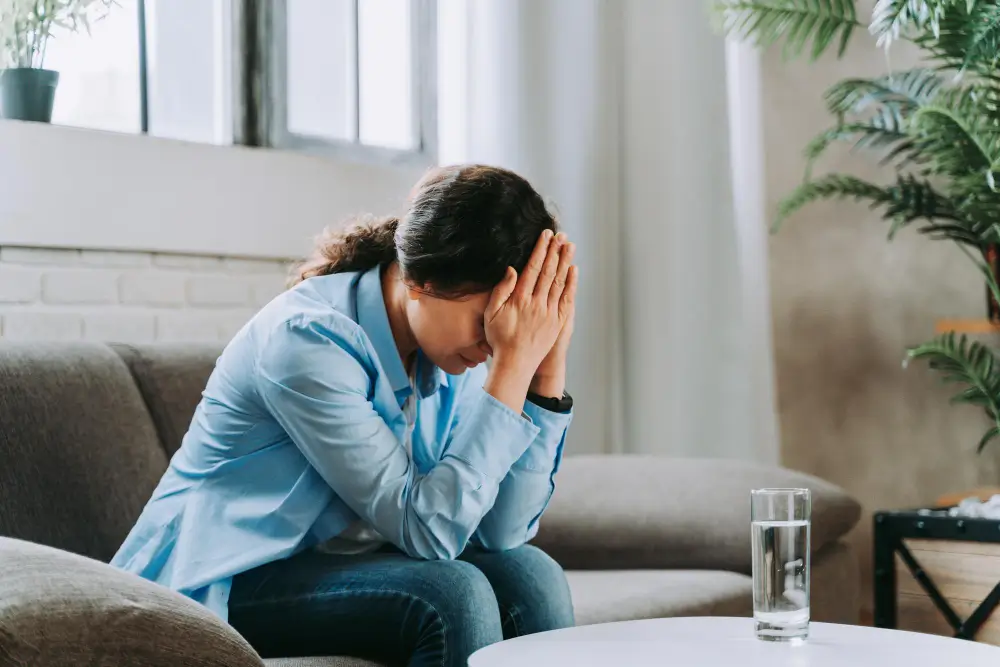For many people, hospitals are places of care and healing, whereas for many others, they generate anxiety, uneasiness, or even panic. This emotional reaction, which is commonly known as health anxiety, arises out of excessive worrying about one’s health or fear of a serious diagnosis. While it is normal to feel a little nervous before a checkup, ongoing anxiety can lead individuals to delay receiving care until absolutely necessary, which can, in turn, negatively affect health. It is very important to recognize and cope with health anxiety in regards to emotional and physical health. In this article, we will discuss in detail Healthy anxiety.

Understanding Health Anxiety
Health anxiety or illness anxiety disorder is a condition wherein individuals consistently fear they have or will develop a medical condition despite little or no evidence of illness. Often, this fear intensifies before an appointment or a medical test, or a treatment. Often, health anxiety originates from:
- negative experiences in the medical community
- discovering upsetting health-related information online
- family history of illness
- generalized anxiety or panic disorder
When fears become pervasive, individuals may engage in avoidance behavior by delaying or canceling appointments due to fear of bad news.
Common Fears When Going to the Hospital
According to anxiety doctors near me, patients who experience health anxiety often share specific fears, such as:
- Fear of a serious or life-threatening diagnosis
- Fear of painful tests or procedures
- Fear of medical equipment or hospitals
- Fear of doctors or overanalyzing what the doctor says
- Fear of financial consequences or consequences relating to treatment
Many of the fears discussed above can increase heart rate, sweating, nausea, or shortness of breath, which can elicit similar feelings that accompany the patient’s fear of illness.
Tips for Managing Health Anxiety
Managing anxiety about going to the hospital or getting a diagnosis takes mental preparation and coping mechanisms.
- Education: Having an understanding of why a medical test is being ordered and what it entails can cut down on the unknown.
- Support: Inviting a trusted friend or family member to accompany the patient on their hospital visit can provide reassurance and emotional stability.
- Discuss with the doctor: Discussing your fears and anxiety directly with the treating physician can facilitate personalized care. You may become educated about the procedure being done, and discuss taking unnecessary tests or medications. A physician who knows the anxiety and fear a patient has will frequently offer some type of rationale when addressing patients’ concerns.
- Mindfulness and Relaxation Strategies: Relaxation exercises such as deep breathing exercises, meditation, grounding, or mindfulness techniques can help patients in their anxiety treatment.
- Limiting Online Searches: For many patients, Googling symptoms leads to increased anxiety and confusion. Patients should increasingly trust professionals and not self-diagnose on their own.
- Professional Help: In more extreme cases, cognitive-behavioral therapy (CBT) and counseling can help patients confront fears that aren’t founded in rationality while allowing space for healthier ways of thinking.
If you are looking for the best treatment for anxiety, or the best anxiety disorder treatment, Sohana Hospital Mohali might just be your best option. Sohana Hospital is home to the World’s most advanced technology and North India’s most trusted and experienced psychologists who provide the most comprehensive and holistic care for all the mental-health-related issues of the patients. Book your appointment today!
